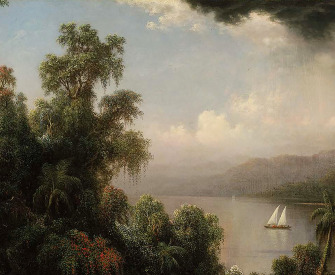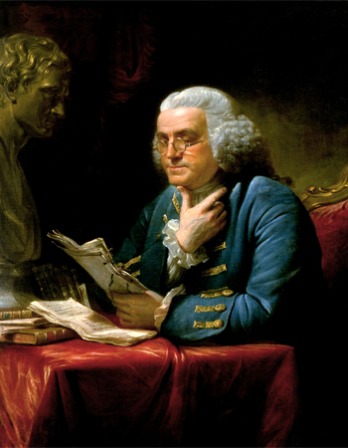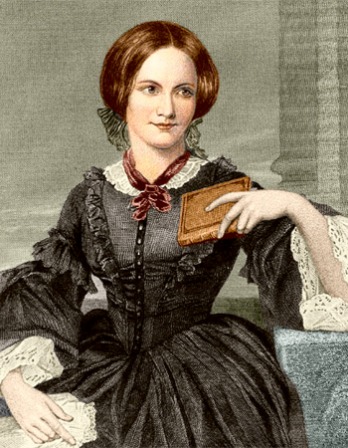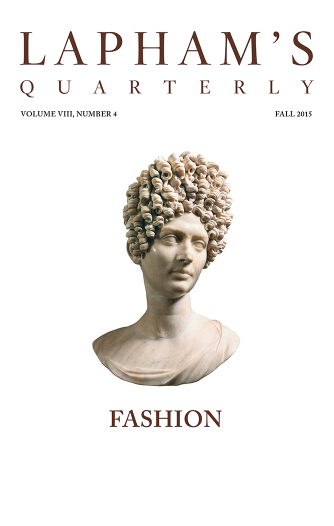The true mission of American sports is to prepare young men for war.
—Dwight D. Eisenhower, 1952Picking Up the Pace
Roger Bannister runs the first sub-four-minute mile.
I spent the afternoon watching from the window the swaying of the leaves. “The wind’s hopeless,” said Joe Binks on the way down to the track. At 5:15 there was a shower of rain. The wind blew strongly, but now came in gusts, as if uncertain. As Brasher, Chataway, and I warmed up, we knew the eyes of the spectators were on us; they were hoping that the wind would drop just a little—if not enough to run a four-minute mile, enough to make the attempt.
Failure is as exciting to watch as success, provided the effort is absolutely genuine and complete. But the spectators fail to understand—and how can they know?—the mental agony through which an athlete must pass before he can give his maximum effort. And how rarely, if he is built as I am, he can give it.
No one tried to persuade me. The decision was mine alone, and the moment was getting closer. As we lined up for the start, I glanced at the flag. It fluttered more gently now, and the scene from Shaw’s Saint Joan flashed through my mind, how she, at her desperate moment, waited for the wind to change. Yes, the wind was dropping slightly. This was the moment when I made my decision. The attempt was on.
There was complete silence on the ground … a false start … I felt angry that precious moments during the lull in the wind might be slipping by. The gun fired a second time … Brasher went into the lead and I slipped in effortlessly behind him, feeling tremendously full of running. My legs seemed to meet no resistance at all, as if propelled by some unknown force.
We seemed to be going so slowly! Impatiently I shouted “Faster!” But Brasher kept his head and did not change the pace. I went on worrying until I heard the first lap time, 57.5 seconds. In the excitement my knowledge of pace had deserted me. Brasher could have run the first quarter in 55 seconds without my realizing it, because I felt so full of running, but I should have had to pay for it later. Instead, he had made success possible.
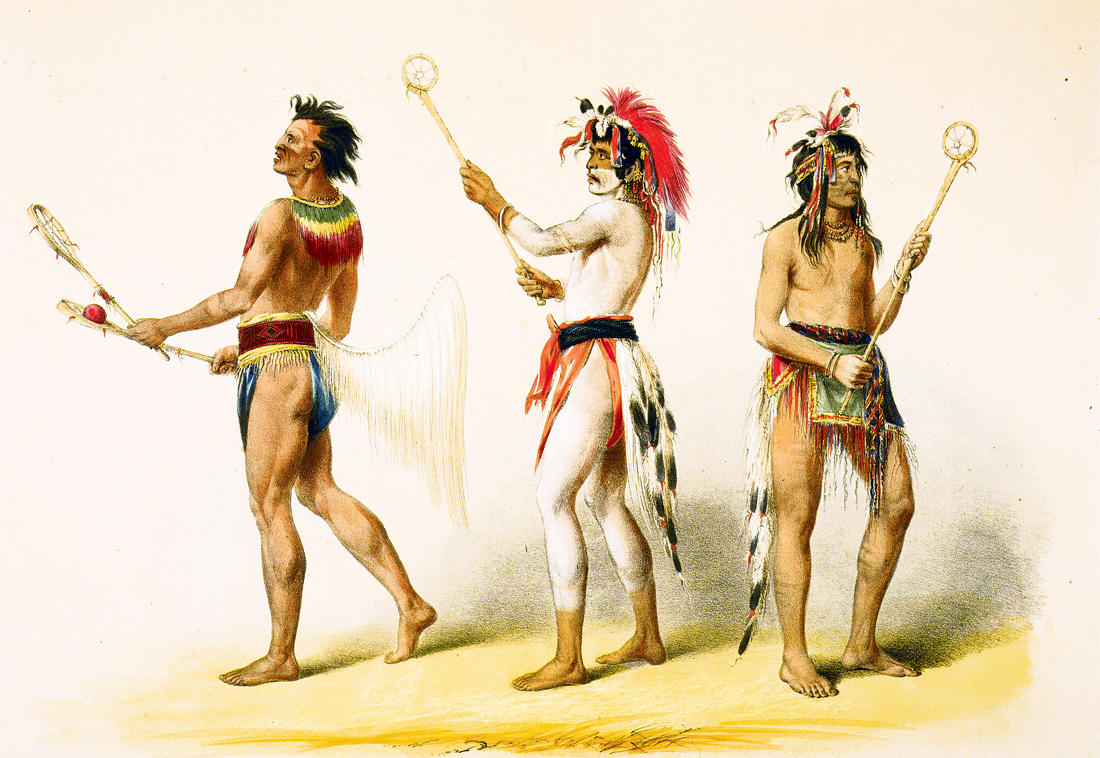
Ball Players, by George Catlin, c. 1841. Smithsonian American Art Museum, Washington, D.C.
At one and a half laps I was still worrying about the pace. A voice shouting “relax” penetrated to me above the noise of the crowd. Unconsciously I obeyed. If the speed was wrong it was too late to do anything about it, so why worry? I was relaxing so much that my mind seemed almost detached from my body. There was no strain.
I barely noticed the half mile, passed in 1 minute 58 seconds, nor when, round the next bend, Chataway went into the lead. At three-quarters of a mile the effort was still barely perceptible; the time was 3 minutes 0.7 seconds, and by now the crowd was roaring. Somehow I had to run that last lap in 59 seconds. Chataway led round the next bend and then I pounced past him at the beginning of the back straight, three hundred yards from the finish.
I had a moment of mixed joy and anguish, when my mind took over. It raced well ahead of my body and drew my body compellingly forward. I felt that the moment of a lifetime had come. There was no pain, only a great unity of movement and aim. The world seemed to stand still, or did not exist. The only reality was the next two hundred yards of track under my feet. The tape meant finality—extinction perhaps.
I felt at that moment that it was my chance to do one thing supremely well. I drove on, impelled by a combination of fear and pride. The air I breathed filled me with the spirit of the track where I had run my first race. The noise in my ears was that of the faithful Oxford crowd. Their hope and encouragement gave me greater strength. I had now turned the last bend and there was only fifty yards more.
My body had long since exhausted all its energy, but it went on running just the same. The physical overdraft came only from greater willpower. This was the crucial moment when my legs were strong enough to carry me over the last few yards as they could never have done in previous years. With five yards to go the tape seemed almost to recede. Would I ever reach it?
Those last few seconds seemed never ending. The faint line of the finishing tape stood ahead as a haven of peace, after the struggle. The arms of the world were waiting to receive me if only I reached the tape without slackening my speed. If I faltered, there would be no arms to hold me, and the world would be a cold, forbidding place, because I had been so close. I leapt at the tape like a man taking his last spring to save himself from the chasm that threatens to engulf him.
My effort was over and I collapsed almost unconscious, with an arm on either side of me. It was only then that real pain overtook me. I felt like an exploded flashlight with no will to live; I just went on existing in the most passive physical state without being quite unconscious. Blood surged from my muscles and seemed to fell me. It was as if all my limbs were caught in an ever-tightening vice. I knew that I had done it before I even heard the time. I was too close to have failed, unless my legs had played strange tricks at the finish by slowing me down and not telling my tiring brain that they had done so.
The stopwatches held the answer. The announcement came—“Result of one mile … time, 3 minutes”—the rest lost in the roar of excitement. I grabbed Brasher and Chataway, and together we scampered round the track in a burst of spontaneous joy. We had done it—the three of us!
We shared a place where no man had yet ventured—secure for all time, however fast men might run miles in future. We had done it where we wanted, when we wanted, how we wanted, in our first attempt of the year. In the wonderful joy my pain was forgotten and I wanted to prolong those precious moments of realization.
I felt suddenly and gloriously free of the burden of athletic ambition that I had been carrying for years. No words could be invented for such supreme happiness, eclipsing all other feelings. I thought at that moment I could never again reach such a climax of singlemindedness. I felt bewildered and overpowered. I knew it would be some time before I caught up with myself.
©1955, 1981, 2004 by Roger Bannister. Used with permission of The Lyons Press, www.lyonspress.com.
Roger Bannister
From The Four-Minute Mile. While a student at Oxford University and St. Mary’s Hospital, Bannister broke the nine-year-old world record for the mile by almost two seconds, the first person to cross the line under four minutes. He earned his medical degree in 1963, became a practicing neurologist—publishing papers on the physiology of exercise and heat illness—and was knighted in 1975.

